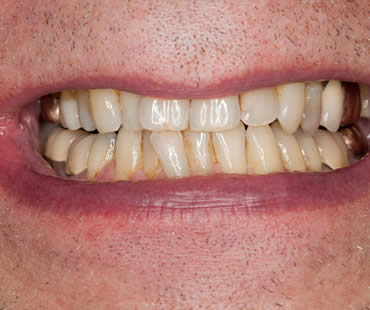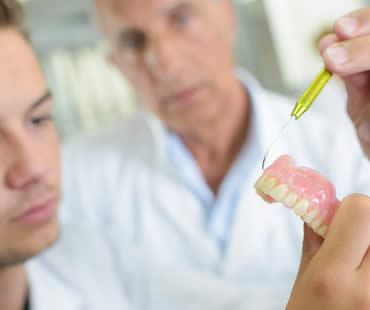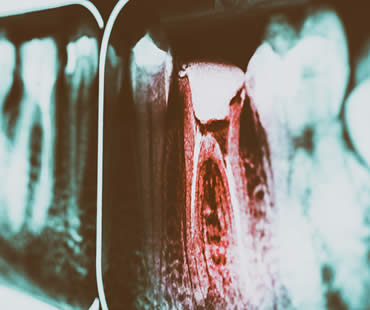
by Dr. Adkins | Sep 13, 2019 | Blog, Dental Information, Dental Topics 2
Plaque is your mouth’s enemy. It is a film of bacteria that forms on your teeth, and produces acid as it mixes with sugar from foods and drinks you consume. Over time, these acids destroy your tooth enamel and lead to decay. Plaque can also form under your gums and affect both the gum tissue and the bones supporting your teeth.
So how can you avoid getting the plaque that causes these problems? Here are some helpful tips.
Brush
Use a fluoride toothpaste to brush your teeth at least twice a day. Choose a soft-bristled toothbrush and brush all of your tooth surfaces, as well as your tongue.
Floss
As much as many people don’t want to, flossing your teeth every day is important in getting rid of plaque between your teeth and at your gum line.
Eat healthy foods
Some foods help keep plaque off your teeth. Munch on apples, cucumbers, carrots, and other raw vegetables and fruits. Crunchy foods like these will help clean your teeth while filling you up and giving you helpful nutrients.
Avoid junk food
On the other hand, limit the amount of junk food that you eat. Sugary drinks and foods introduce sugar into your mouth that will stick to your teeth and lead to plaque formation.
See your dentist
Even if you practice good oral hygiene, some amount of plaque usually forms. It hardens to become tartar, which can only be properly removed by your dentist. Dental checkups every six months will help you keep plaque under control, and a healthy smile on your face.
Schedule your appointment at our McDonough dental office

by Dr. Adkins | Sep 6, 2019 | Blog, Dental Topics 2, Kids Dentistry
Some people have the wrong idea that taking their children to the dentist isn’t that important, and that it’s really a healthcare choice for adulthood. Young teeth are vulnerable to bacteria that lead to cavities and gum disease, so teaching your kids how to practice good dental hygiene is a must. However, it’s just as important to get into the habit of taking your kids for regular checkups at the dentist.
Does it matter which dentist we choose?:
Sometimes the hardest part about the whole process is talking your child into seeing a dentist. Many kids are afraid of the dentist, even if it’s just the idea of an unknown experience. Then once they go to the dentist and see all the unfamiliar and sometimes noisy equipment, you can be in for an uphill battle. That’s why it’s important to choose a dentist who is experienced in treating kids and equipped for their unique needs. Select a dental office that strives to make kids comfortable and helps them through the process. You may even want to consider a pediatric dentist, who specializes only in treating kids.
What can we expect at a checkup?:
The goal of a dental visit is to clean and protect your child’s teeth, and to prevent and treat diseases or other problems. The dentist will start with an examination and X-rays if needed, in order to get a better view of your child’s oral health. The appointment will also include a teeth cleaning, which provides a much more thorough and deep cleaning than your child is able to perform at home. If there are any problems diagnosed, treatment procedures will be discussed and you can decide with the dentist how to proceed.
If you need a dentist in McDonough contact us today

by Dr. Adkins | Aug 30, 2019 | Blog, Dental Topics 2, Dentures
An implant overdenture combines the use of traditional dentures and implant technology to create a denture that fits over your remaining natural tooth roots or dental implants. These root or implant supported dentures are held in place by dental attachments which provide excellent stability and support for your dentures. Overdentures were developed to help patients missing some or all of their teeth regain a quality of life that may have been lacking since they lost their teeth.
There are several benefits to implant overdentures when compared to traditional dentures:
- Saving your natural roots or having implants placed slows bone loss by stimulating the bone in your jaw when you eat or chew.
- Because overdentures are better fitting by design, they are more stable and allow you to chew food more thoroughly. This promotes better digestion and allows you to absorb more nutrients.
- The increased stability provided by overdentures also means you are able to speak more clearly, as there is no slipping or clicking of your dentures.
- Loose dentures are not a worry with overdentures. Sticky adhesives and messy denture creams are unnecessary when you have implant overdentures.
- With overdentures, the natural shrinkage that occurs from an under-stimulated jaw does not occur. This keeps your face from looking sunken, as can often happen with traditional dentures.
To find out if you are a candidate for implant overdentures, schedule an evaluation by your dental professional. Overdentures could be the best, most natural treatment for restoring your oral health and beautiful smile.
If you live in the McDonough area contact us today

by Dr. Adkins | Aug 23, 2019 | Blog, Dental Topics 2, Root Canal Treatment
The desire for a beautiful, healthy, natural smile is universal. Dental procedures such as root canal treatments aren’t something people aspire to have, and there are things you can do personally that can reduce your risk of having a root canal procedure.
Prevention is the best step you can take to avoid root canal therapy, and it all begins with you at home. If you didn’t grow up with good oral hygiene habits, now is the time to develop them. This simple step can lead directly to good oral health. Be sure you are brushing your teeth at least twice a day, following each meal if possible, and absolutely before sleeping. If you don’t brush your teeth before bedtime, you’re providing a robust breeding ground for bacteria to grow and degrade your teeth while you’re sleeping. Floss daily to reach the places between teeth and beneath the gum line that brushing can’t reach.
Fluoride in your toothpaste and in mouthwash can keep your tooth enamel strong and durable. Never give fluoridated toothpastes to children under the age of two years and avoid fluoridated mouthwash until the child is more than six years old.
Maintaining a proper diet ensures that your body is receiving all of the nutrients it needs for health, both orally and elsewhere in the body. Chewing crunchy foods like raw vegetables and hard fruits can help keep your teeth bright and clean, scraping away debris while you chew.
If you are a smoker, you should stop immediately. Not only is it a huge factor in your oral health, but also for your overall health. Smoking contributes directly to lung disease, cancer and heart disease, as well as other health issues. Your dentist or doctor can give you excellent advice about quitting.
Stay hydrated by drinking lots of water and avoiding sugared drinks. Rinse your mouth after consuming soda, coffee, tea or a sports drink.
Be sure to see your dentist twice a year for regular check-ups and cleanings, and keep your risk of a root canal treatment low.
Schedule your appointment at our McDonough dental office

by Dr. Adkins | Aug 9, 2019 | Blog, Dental Topics 2, Teeth Whitening
Life is full of special events that you will remember forever. When you look back at photographs from your special days, you will want to know that you looked your very best. Weddings, birthdays, reunions, graduations, anniversaries, job interviews, or that very special first date are times you will want to put your best face forward. Everything begins with your smile. Your dentist can help you prepare for these kinds of events by brightening your smile, making you look younger and more vibrant and boosting your self-confidence.
Your teeth naturally discolor with age, and this process is accelerated as you eat various foods and dark beverages. Blueberries, blackberries, and beets can all leave stains on your teeth. Dark sodas, coffee, tea, and red wine can also leave their mark with residual color on your teeth. Don’t find yourself feeling self-conscious about your discolored smile; talk to your dentist about what teeth whitening options are available to you. Not all whitening processes are good for every type of teeth. Your dentist will know what is ideal for you.
Before you whiten, it is important to have a dental exam and cleaning. The results of your whitening depend on the initial condition of your teeth. Cleaning your teeth ensures that the whitening procedure affects all of the areas of your teeth, and doesn’t leave out areas currently hidden by plaque or tartar.
Because some teeth whitening techniques require time to achieve the best results, you need to plan ahead. Begin with a consultation with your dentist several weeks prior to your special day, to allow time for the whitening process to work. Some people experience increased sensitivity to their teeth after whitening. Starting early will allow your teeth to recover from the whitening process.
A brighter smile will always help you look and feel better. It will help you make the most positive first impression. On your special day, when you smile for the camera, your confidence will show. You’ll love what you see in photos for years to come.
Schedule your appointment at our McDonough dental office

by Dr. Adkins | Aug 2, 2019 | Blog, Dental Information, Dental Topics 2
Porcelain veneers can transform your smile from one that embarrasses you to one that you’re proud to show off. A thin shell of porcelain is bonded onto the fronts of your teeth to improve the shape and color. If you’re looking to close gaps between your teeth, reshape your teeth, or brighten stained teeth, porcelain veneers may be your answer. Here are the answers to some frequently asked questions about veneers.
How do veneers work?
Made from durable and natural-looking porcelain, veneers are customized to fit your teeth. Your face shape, skin tone, eyes, height, and even your personality are considered when designing your dental veneers. They are bonded securely to your teeth to give you the smile you always wanted.
Is it a long process to get them?
The process for getting veneers usually takes about four to six weeks. At your first appointment, your teeth will be shaped and their surface will be slightly roughened. Impressions will be taken to create models of your mouth so that the veneers can be personalized for you. At the next appointment, your teeth will be cleaned and polished before a special adhesive is used to bond the veneers to your teeth. A high-intensity light is used to set the adhesive.
What will my teeth look like while I’m waiting for veneers?
After your teeth have been prepared for veneers, usually you will be fitted with specialized temporary veneers. These interim veneers look better than your original teeth, so you won’t feel self-conscious during the waiting period.
How long do veneers last?
Porcelain veneers typically last from ten to twenty years. Porcelain is very strong and durable, and resistant to stains and wear.
What are the advantages to veneers?
Since the bond to your original teeth is strong, porcelain veneers can be treated just like your own teeth. They appear very natural because the porcelain looks similar to your tooth enamel. Veneers can also protect your teeth from further damage if they are chipped or worn down, so they not only cover your teeth with a layer of protection but also create a beautiful bright smile.
Our dental office is located in McDonough








 (470) 665-5292
(470) 665-5292  E-Mail Us
E-Mail Us 
